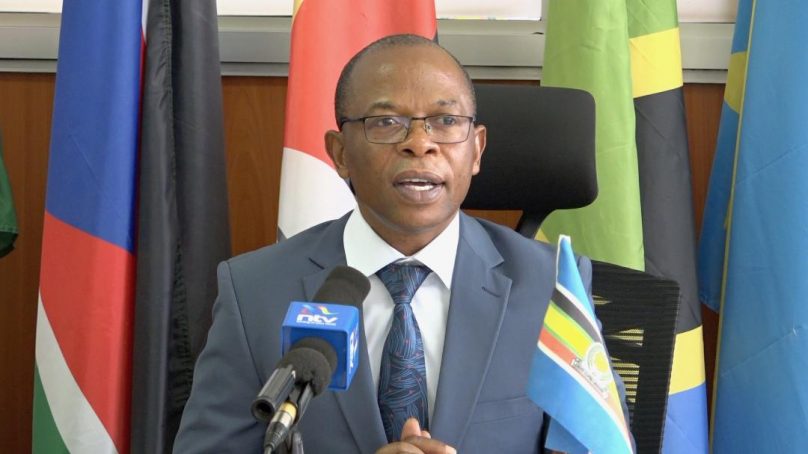
Lake Victoria Basin Commission boss says Mara River faces existential threats despite regional gains
Mara River, a lifeline that sustains both Maasai Mara and Serengeti ecosystems, is facing unprecedented ecological stress despite a decade of cross-border conservation initiatives, the Lake Victoria Basin Commission (LVBC) has warned.
LVBC Executive Secretary Masinde Bwire says the basin was under siege from deforestation in the Mau Forest, rapid land-use changes and pollution, factors he warned could alter the river’s hydrology and jeopardise the annual wildebeest migration that draws global attention to Kenya and Tanzania.
“Throughout the basin, we are witnessing forest land being converted into agriculture and trees felled at alarming rates. This reduces the ability of the river to regulate water, increases erosion and distorts natural flow. If unchecked, it will affect the very migration that defines this ecosystem,” Dr Bwire said.
Dr Bwire said the commission has flagged waste water from farms, mining and raw effluents from settlements as the leading threats to the river. Soil erosion, he said, was reducing water quality and threatening the ecological balance that sustains wildlife.
The Mara, shared between Kenya and Tanzania, is central to livelihoods in the Lake Victoria basin, underpinning agriculture, livestock keeping, fishing and tourism. It generates significant revenue through the Masai Mara Game Reserve and Serengeti National Park, two of Africa’s most celebrated conservation landscapes.
Bwire acknowledged that conservation efforts have also borne fruit following the signing of a memorandum of understanding between Kenya and Tanzania which has ensured annual budgetary allocations for river management. He added that grassroots water user associations have also created forums for communities to negotiate access and resolve disputes.
Development partners, he said, have funded multiple projects to strengthen livelihoods and conservation calling on the two East Africa partner states to enforce the pact to save the river for future generations.
“These are tangible gains. We have built institutions, attracted donor investments, and created local platforms that give communities ownership in resource use. But these achievements are fragile and must be defended,” he said.
This year, over 60 research abstracts from Kenya, Tanzania, Uganda and Norway have been submitted to a scientific conference focused on the basin.
The conference, to be held at Mwalimu Julius Nyerere University of Agriculture and Technology in Tanzania, is part of this year’s Mara Day Celebrations and will bring together scholars, policy makers and students to debate solutions for sustainable management.
“The presence of speakers from outside Africa shows that the Mara is not just a regional concern but a global environmental issue,” Bwire observed.
He stressed that raising awareness among communities was crucial: “Once they understand the income and life-support systems they derive from the river, they will be more inclined to conserve it,” he said.
Bwire made the remarks in his office in Kisumu ahead of the 14th annual Mara Day celebrations, scheduled for September 12-15 in Butiama, Tanzania. The event, which alternates between Kenya and Tanzania, was declared in 2012 by the regional council of ministers to and coincides with the wildebeest migration season.
This year’s theme is Protect Mara River, Preserve Life and activities will include scientific conference, tree planting, exhibitions, sports and essay competitions with high-level government representatives from Kenya and Tanzania expected to attend.
“Mara Day is a platform to renew cooperation and remind ourselves that ecological survival depends on collective action,” Bwire said.
- A Tell Media / KNA report / By Chris Mahandara







